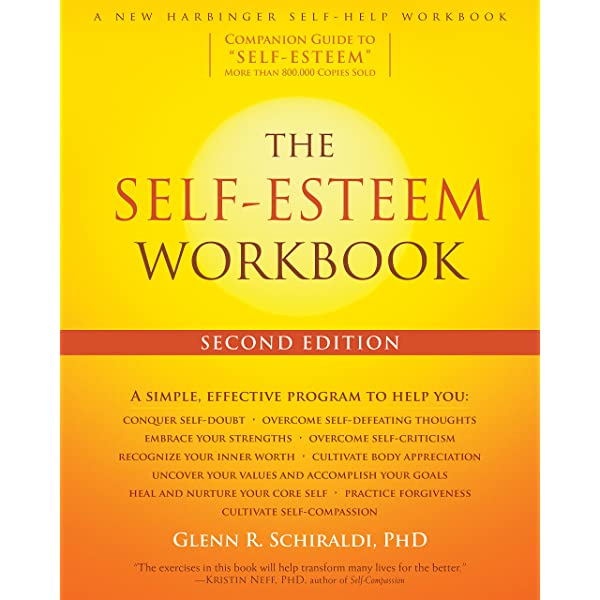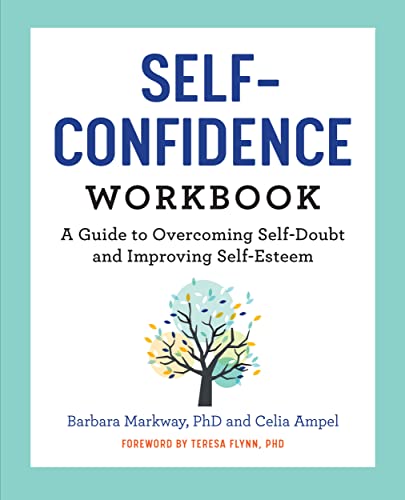Content Summary
In a world that often demands perfection and comparison, developing and nurturing a healthy sense of self-esteem is crucial. Self-esteem forms the foundation of our mental well-being and shapes our overall attitude toward life.
It is an essential ingredient for personal growth, resilience, and success. In this article, we will explore the concept of self-esteem, its significance, how to achieve it, and practical ways to improve and maintain a healthy level of self-esteem.
Understanding Self-Esteem
Self-esteem can be defined as the subjective evaluation and perception of one's own worth or value. It encompasses the thoughts, beliefs, and feelings we have about ourselves.
Self-esteem is not about being overly confident or arrogant; rather, it is about having a balanced and realistic view of ourselves, acknowledging our strengths and weaknesses, and treating ourselves with compassion and respect.
The Importance of Self-Esteem
Self-esteem plays a vital role in various aspects of our lives, influencing our emotions, thoughts, behaviors, and relationships.
Here are a few reasons why self-esteem is important:
Emotional well-being: High self-esteem fosters a positive self-image, leading to greater emotional resilience, reduced vulnerability to stress, and improved ability to cope with setbacks and failures.
Confidence and assertiveness: Self-esteem empowers us to express our opinions, assert our needs, and take healthy risks. It allows us to believe in our abilities, promoting a sense of confidence and empowerment.
Healthy relationships: When we have a healthy level of self-esteem, we are more likely to attract and maintain healthy relationships. We can set boundaries, communicate effectively, and avoid becoming overly dependent or vulnerable.
Achievement and success: Self-esteem is a driving force behind setting goals, taking action, and persevering through challenges. It fuels motivation, determination, and a belief in our abilities, leading to increased productivity and success.

How to Achieve Self-Esteem
Practice self-acceptance: Embrace your unique qualities, including strengths and weaknesses. Understand that imperfections are part of being human and do not define your worth as an individual.
Challenge negative self-talk: Become aware of your inner critic and challenge negative thoughts or self-doubt. Replace self-criticism with self-compassion and supportive, affirming statements.
Set realistic goals: Break down your goals into manageable steps and celebrate your achievements along the way. Each small success contributes to building your self-esteem.
Surround yourself with positivity: Surround yourself with supportive and positive people who uplift and encourage you. Avoid toxic relationships that undermine your self-worth.
Take care of yourself: Engage in activities that promote self-care, such as exercise, healthy eating, adequate sleep, and pursuing hobbies or interests that bring you joy and fulfillment.

Improving Self-Esteem
Develop new skills: Learning new skills or hobbies can boost your confidence and provide a sense of achievement. Engaging in activities that align with your interests and values can enhance self-esteem.
Practice self-compassion: Treat yourself with kindness and understanding, just as you would a friend. Practice self-care and self-compassion in times of difficulty or failure.
Celebrate your strengths: Acknowledge your strengths, talents, and accomplishments. Keep a journal or create a gratitude list to remind yourself of the positive aspects of your life.
Seek support when needed: If you're struggling with self-esteem, consider seeking professional help. A therapist or counselor can provide guidance, support, and strategies tailored to your specific needs.
Most FAQs about Self-Esteem:
What are the Three Types of Self-Esteem?
The concept of self-esteem is complex and can be categorized into various types or components. While different theories and models propose different classifications, here are three common types of self-esteem:
Global self-esteem:
Global self-esteem refers to an overall evaluation of one's worth and value as a person. It represents a person's general sense of self-worth across various domains of life, including personal, social, academic, and professional aspects.
Global self-esteem involves how individuals perceive and judge themselves as a whole. It is influenced by factors such as achievements, relationships, societal standards, and personal beliefs.
Domain-specific self-esteem:
Domain-specific self-esteem focuses on how individuals evaluate themselves within specific areas of their lives. Rather than having a general assessment of self-worth, individuals may have varying levels of self-esteem in different domains, such as academics, physical appearance, relationships, or competence in specific skills or talents.
For example, someone may have high self-esteem in their professional life but struggle with self-esteem when it comes to their physical appearance.
Situational self-esteem:
Situational self-esteem refers to the temporary fluctuations in self-esteem based on specific situations or contexts. It involves how individuals perceive and evaluate themselves in response to particular events, experiences, or social interactions.
For instance, receiving positive feedback or accomplishing a goal can boost situational self-esteem, while facing criticism or experiencing failure can temporarily lower it. Situational self-esteem is more fluid and can vary based on external factors and circumstances.
It's important to note that these types of self-esteem are not mutually exclusive and can interact with each other. An individual's overall self-esteem may be influenced by both global and domain-specific factors, while situational self-esteem can have temporary effects on overall self-esteem.
Understanding these different types can help individuals identify and address specific areas where they may need to focus on improving their self-esteem.
How to Evaluate Self-Esteem?
Evaluating your self-esteem requires self-reflection and introspection.
Here are some steps you can take to assess your self-esteem:
Self-awareness: Begin by developing self-awareness and paying attention to your thoughts, feelings, and behaviors related to self-esteem. Notice any recurring patterns or tendencies in how you perceive and evaluate yourself.
Reflection on self-perception: Consider how you see yourself in different areas of life, such as personal relationships, work, achievements, physical appearance, and talents.
Ask yourself questions like:
Do I generally have a positive or negative view of myself?
What are my strengths and weaknesses?
How do I respond to success or failure?
How do I compare myself to others?
Do I set realistic expectations for myself?
How do I handle criticism or feedback?
Assessing internal dialogue: Pay attention to your inner dialogue or self-talk. Are you predominantly self-critical, self-compassionate, or neutral? Notice the tone and content of your thoughts about yourself.
Feedback from others: Seek feedback from trusted friends, family members, or mentors who can provide an external perspective on how they perceive you and your self-esteem. Their insights can help you gain a more comprehensive understanding of yourself.
Emotional indicators: Your emotions can provide clues about your self-esteem. Notice how you feel on a regular basis. Are you frequently experiencing feelings of worthlessness, shame, or anxiety? Or do you generally feel confident, content, and resilient?
Behaviors and choices: Examine how your self-esteem influences your behaviors and choices. Are you more likely to avoid challenges due to fear of failure or take risks and pursue opportunities with confidence? Do you engage in self-sabotaging behaviors or prioritize self-care and personal growth?
Journaling: Maintaining a journal can be a helpful tool for self-reflection. Write down your thoughts, feelings, and experiences related to self-esteem. Document instances where you notice low or high self-esteem and explore the underlying reasons and triggers.
Remember, evaluating self-esteem is an ongoing process, and it's important to approach it with self-compassion and without judgment. It's natural to have fluctuations in self-esteem, and identifying areas for improvement is an opportunity for personal growth and development.
Does Low Self-Esteem Lead to Anxiety and Vice Versa?
Yes, there is a strong relationship between low self-esteem and anxiety, and they can influence each other in a bidirectional manner.
Here's how they are interconnected:
Low self-esteem and anxiety:
Negative self-perception: Individuals with low self-esteem often have a negative and critical view of themselves. They may feel unworthy, inadequate, or flawed.
These negative self-perceptions can contribute to feelings of anxiety, as individuals may constantly worry about being judged, rejected, or not measuring up to their own or others' expectations.
Fear of failure and rejection: Low self-esteem can be accompanied by a fear of failure and rejection. This fear can lead to anxiety in various areas of life, such as academics, work, relationships, or social interactions. The fear of making mistakes or being judged can create significant anxiety and hinder individuals from taking risks or pursuing their goals.
Social anxiety: Low self-esteem is often associated with social anxiety, as individuals may feel anxious and self-conscious in social situations. They may fear being humiliated or embarrassed and worry excessively about how others perceive them. This anxiety can lead to avoidance of social interactions, isolation, and further erosion of self-esteem.
Overthinking and rumination: Low self-esteem can contribute to rumination and overthinking, where individuals dwell on past mistakes, perceived flaws, or negative feedback. This rumination can exacerbate anxiety, as individuals become trapped in a cycle of negative thoughts and worries about their self-worth and potential negative outcomes.
Anxiety and low self-esteem:
Impact on confidence and self-belief: Anxiety can undermine confidence and self-belief, leading to a decrease in self-esteem. Persistent worries, self-doubt, and anticipatory anxiety can erode individuals' belief in their abilities and contribute to a negative self-perception.
Avoidance behaviors: Anxiety often leads individuals to engage in avoidance behaviors to alleviate their distress. This avoidance can prevent them from facing challenges, pursuing goals, or taking risks, further reinforcing a negative self-perception and contributing to low self-esteem.
Negative self-talk: Anxiety can generate negative self-talk, where individuals constantly criticize and doubt themselves. This self-talk reinforces negative beliefs and contributes to low self-esteem, creating a cycle of anxiety and diminished self-worth.
Addressing both low self-esteem and anxiety:
Given the interplay between low self-esteem and anxiety, it is essential to address both simultaneously for comprehensive well-being. Building self-esteem through self-compassion, challenging negative thoughts, setting realistic goals, and seeking support can help alleviate anxiety.
Similarly, managing anxiety through relaxation techniques, cognitive-behavioral therapy, and addressing underlying beliefs can positively impact self-esteem.
Author's Choice of Self-Esteem Tools



Conclusion
Self-esteem is a powerful asset that enables personal growth, happiness, and resilience. By understanding its definition, recognizing its importance, and implementing strategies to improve self-esteem, we can unlock our full potential and live a fulfilling life.
Remember, self-esteem is a journey that requires patience, self-reflection, and consistent effort, but the rewards are worth it. Embrace your worth and embrace the power of self-esteem.
Be Confident Love and Respect Yourself!
There is Only One Like You in This World!
Relevant Reads>>>













